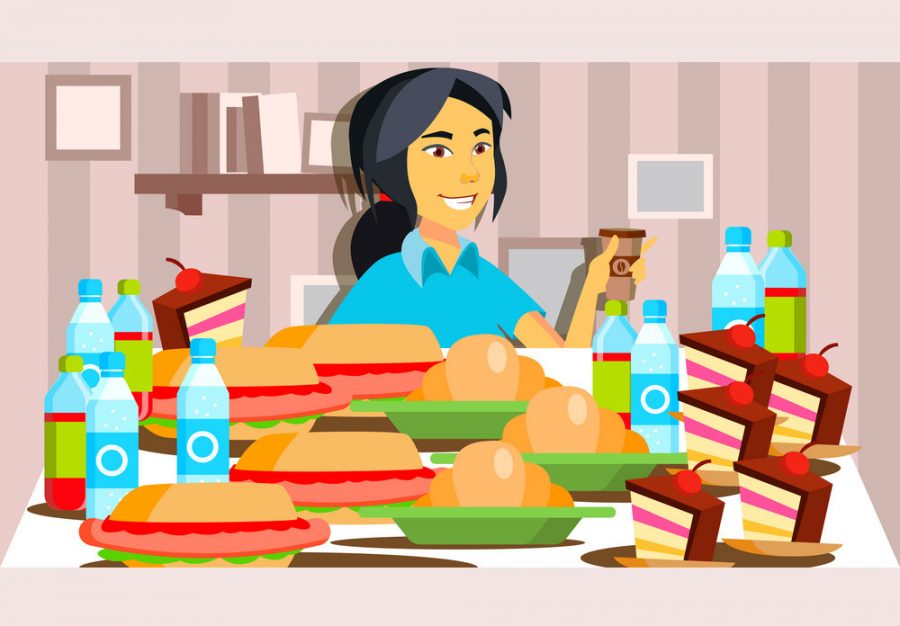The Problem With “Mukbangs”
February 1, 2019
This year’s YouTube Rewind featured many topics and interests, one of which was “mukbang,” a word that I was completely unfamiliar with and had no idea what it meant, even with context from the ten-second clip shown. By inputting it back into the YouTube search bar, I quickly found out that it was just another food trend where people try to stuff a large amount of food into their mouth to satiate their desires for either food or views. However, it was unsettling to me seeing people eat what I consider to be a day’s meal in one sitting.
“Mukbang,” meaning “eating show” in Korean, is concerning to impressionable kids and the YouTubers themselves because it promotes overeating for the thrill of fame or pleasure. Many of these videos are quite lengthy, reaching the 45-minute mark and involve eating huge amounts of unhealthy food which can range from massive combos of takeouts to platters of breadsticks from Olive Garden. It isn’t the best meal one could eat in one sitting, especially not weekly as seen with the upload schedule of popular mukbang YouTubers.
However, many claim to not be doing this for themselves. Instead they pose as a friendly interaction channel where fans can connect with the person on the screen, sharing stories and conversation. For those with a taste for autonomous sensory meridian responses, or ASMR, many videos have lip-smacking or the slurping of noodles―if they’re into that. At the beginning of many videos, popular Youtubers will encourage viewers in their videos to eat along with them before they begin their huge feast. Many also seek to break down the societal barriers of weight gain and the shame of eating food, which can be exemplified in Korean culture. Although immediately dismissed, the Korean government has started to post rules in fear of its obesity rates increasing. While I personally don’t feel any happiness or freedom from sitting through a 30-minute video of someone shoveling food into their mouth, I can see the appeal in the satisfaction of watching someone else enjoy eating good food.
Mukbang is an interesting trend nonetheless, but people shouldn’t be promoting such harmful eating habits which can also be detrimental to their mental health. It’s great that YouTubers are inspiring people to not hate themselves for being overweight or eating too much, but they shouldn’t be completely dismissing the health risks that come from it. Spreading a positive message shouldn’t mean avoiding the problems that already exist and affect you.
Graphic courtesy of VECTORSTOCK.COM

